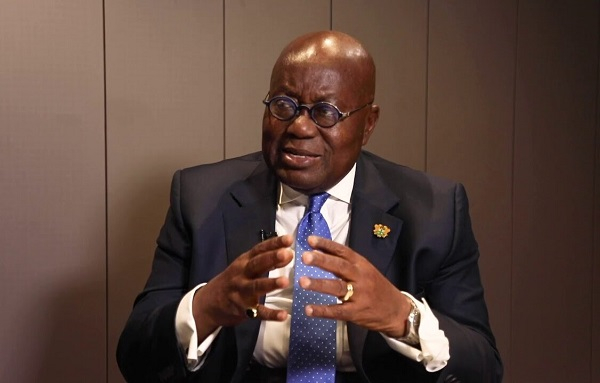Early-Stage Fintech Funding Trends in Africa - Tech In Africa
Africa’s fintech sector is growing fast, driven by digital financial solutions for underserved communities. Between 2020 and 2024, the number of fintech companies more than doubled, and by 2025, the sector is projected to generate $230 billion in revenue. After a funding slump from 2022 to 2024, early-stage fintech funding rebounded in 2025, with $1 billion raised in the first half of the year – a 40% increase over the same period in 2024.
Key trends include:
Challenges remain, including regulatory hurdles, limited local funding, and infrastructure gaps. However, with mobile internet users set to reach 475 million by 2025, fintech startups have enormous potential to expand financial services across Africa.
In 2024, fintech accounted for almost half of Africa’s startup investments, showcasing its strong position in the market. The sector raised $1.4 billion, making up 60% of all equity funding. This marked a 59% increase in total funding and a 16% rise in the number of deals compared to 2023. Seed-stage companies played a significant role, contributing to 69% of deal volume but receiving just 22% of the total equity funding. Interestingly, while the average seed-stage ticket size grew by 26% to $1.6 million, the total number of deals dropped from 337 to 315, a 7% decline.
For Series A funding, the picture was mixed: the number of deals increased by 13%, going from 86 to 97, but the average ticket size fell by 18%, continuing a decline that started in 2022. These trends highlight the shifting dynamics in fintech funding and provide a backdrop for understanding how the broader funding slowdown has impacted the sector.
Between 2022 and 2024, venture capital deals in fintech dropped by 52%, and overall investment in the sector fell by 37%. In the first half of 2024 alone, funding plummeted 51%, from $864 million in 2023 to $419 million. This slowdown has triggered structural changes, including fewer Series A and B deals, longer fundraising timelines, and more extension rounds. Conversion rates from seed and Series A to later stages have also dropped over the past two years.
Despite these challenges, there are signs of recovery. Local investors are stepping up, and a growing number of startups at the seed and Series A levels are creating a pipeline for future growth. However, only about 5% of seed-funded startups in Africa manage to secure Series A funding – a figure that’s 85% below the global average. Yet, among those that succeed, 90% of Series A fintech startups in 2023 reported gross margins above 50%. These trends paint a complex picture of the sector’s resilience and evolving investment landscape.
Even amid funding challenges, specific fintech sectors continue to attract significant investment. Payments, lending, and remittances remain the cornerstones of Africa’s digital financial transformation. Alternative lending models, including buy-now, pay-later services, are growing rapidly, especially among small and medium-sized enterprises.
At the same time, newer areas like software solutions, wealthtech, insurtech, and blockchain services are gaining momentum, pointing to a shift toward more advanced financial products. In Nigeria, for instance, many fintech startups focus heavily on payments and remittance solutions.
Technology is also playing a pivotal role. Artificial intelligence is being used to improve fraud detection, automate compliance, and deliver personalized financial services. Meanwhile, blockchain technology is helping streamline cross-border payments and cut costs. With mobile internet users in Africa expected to reach nearly 475 million by 2025, the potential for fintech to expand its reach and impact is enormous.
The African fintech scene is thriving, thanks to a mix of local and international investors who bring their unique strengths to early-stage funding. For example, Flourish Ventures supported MoneyHash, an Egyptian startup that raised $5.2 million, and, through its subsidiary Madica, invested $200,000 each in Medikea, Motherbeing, and Pixii Motors.
Norrsken22 has also been active, joining an undisclosed round for Kapu, co-leading a $6.75 million round for Taager, and contributing to Raenest’s $11 million funding. Similarly, Endeavor Catalyst participated in a $53 million round for LemFi and co-invested in Taager’s $6.75 million raise. Meanwhile, DisrupTech Ventures backed companies like Hamilton (blockchain), Khazna, and WideBot (AI chatbot).
International players are making waves, too. Germany’s DEG invested in Naked Insurance, a South African insurtech, and Oze, a Ghanaian fintech. Visa also participated in a $10 million funding round for Moniepoint and supported Oze.
On the local front, emerging funds are stepping up to play a more prominent role in shaping the ecosystem.
Local funds are bringing a fresh perspective to the market with their deep understanding of regional dynamics. Launch Africa Ventures, for instance, raised $33 million for its first fund and invested in 133 companies. Now, it’s targeting $75 million for Fund II, with proceeds already being deployed across 20 companies.
Digital Africa has been supporting startups across various sectors, such as Muzikin, a music-tech startup, and E-pineA, an agritech company. Baobab Network has focused on fintech and regulatory technology, backing CreditCheck and Regulon. Renew Capital has taken a regional approach, investing in Sevi, a Kenyan fintech, and Dabchy, a Tunisian fashion e-commerce platform, showcasing how local funds are connecting markets across Africa.
The value of local investment is clear. Marge Ntambi, Venture Partner at Uganda’s Benue Capital, highlights this shift:
"True ecosystem ownership starts with local investment. While international capital can accelerate growth, it often lacks a deep understanding of local dynamics and on-the-ground realities."
This growing emphasis on local ownership is further reflected in the rise of diaspora-backed venture capital firms and a focus on solid execution over lofty ambitions.
This momentum is setting the stage for institutional and corporate investors to take the lead in consolidating the market.
Institutional and corporate investors are becoming increasingly prominent, with debt financing gaining traction alongside equity investments. In 2024, venture debt in tech deals grew by 3% year-on-year, making up 37% of total venture capital deal value.
Corporate investors are also showing renewed interest in African fintech. Visa and the European Investment Bank (EIB) have made significant investments, including Visa’s undisclosed funding for Moniepoint and EIB’s broader support for market growth.
EIB Vice-President Thomas Östros remarked:
"Fintech is revolutionising the way we think about finance in Africa. By leveraging technology, we can improve access to finance for millions and foster sustainable economic growth."
Between 2020 and 2024, the number of fintech companies in Africa nearly tripled, and debt financing accounted for $1 billion of total capital in 2024.
Corporate investors are also driving a wave of consolidation. Mergers and acquisitions are becoming more common as investors aim to build larger, more sustainable entities. This marks a shift from the previous "growth-at-all-costs" approach to a focus on long-term success. As a result, banking and financial services are increasingly being integrated into non-financial apps and services, reshaping the market landscape.
The African fintech sector has seen a series of notable funding rounds, showcasing its resilience and potential. In February 2025, , an Egyptian platform catering to the underbanked, raised $16 million in a pre-Series B round. The funds are aimed at securing a digital banking license in Egypt and expanding into Saudi Arabia, with approval from the Central Bank of Egypt anticipated by mid-2026.
In June 2024, , another Egyptian fintech specializing in household payment solutions, secured $6 million in a combined Series A and seed round. This funding is being allocated to enhance its services and establish operations in Saudi Arabia while strengthening its presence in Egypt and the UAE.
reached unicorn status in October 2024 after raising $110 million in a Series B round, bringing its total funding to approximately $170 million. In January 2025, it received an additional undisclosed investment from Visa.
joined the unicorn club in December 2024 after a $250 million capital raise. Its digital bank, TymeBank, launched in 2019, became the first in Africa to achieve profitability, now serving over 10 million customers.
Smaller but impactful deals also emerged. (Morocco) raised $1.9 million, while (Tunisia) secured $1.5 million, both aiming to broaden their market reach.
These funding achievements underscore investor confidence and highlight diverse business models driving growth across the fintech landscape.
The success of these deals lies in their solid revenue models, efficient unit economics, and focus on sustainable growth. For instance, addresses core challenges in payments, credit, and digital inclusion – key factors that resonated with investors and propelled it to unicorn status. Similarly, is tackling financial inclusion for Egypt’s underbanked population, while has set a benchmark for profitability with its digital bank serving over 10 million users.
This focus on sustainable operations reflects a shift in market priorities. As Joojo Ocran, Strategic Partnerships Director for Africa at Startupbootcamp AfriTech, points out:
"African startups must prioritise profitable, sustainable growth. That’s the message we emphasise."
The trend is further supported by data from 2023, where 90% of successful Series A fintech startups achieved gross margins of over 50%. Investors are increasingly evaluating startups based on their revenue models and capital efficiency, rather than just rapid growth.
| Startup Name | Country | Funding Round | Amount Raised (USD) | Lead/Notable Investors | Year |
|---|---|---|---|---|---|
| Tyme Group | South Africa | Series C | $250 million | Undisclosed | 2024 |
| Moniepoint | Nigeria | Series B | $110 million | Undisclosed | 2024 |
| Khazna | Egypt | Pre-Series B | $16 million | Undisclosed | 2025 |
| Sahl | Egypt | Series A/Seed | $6 million | Undisclosed | 2024 |
| ORA Technologies | Morocco | Pre-Series A | $1.9 million | Undisclosed | 2025 |
| Konnect Networks | Tunisia | Seed | $1.5 million | Undisclosed | 2024 |
These deals accounted for nearly half of Africa’s startup investments in 2024, underlining the diverse opportunities available across different markets and funding stages.
Africa’s fintech funding has been heavily concentrated in the "Big Four" countries: . Between 2021 and 2023, these four nations accounted for .
Leading the pack, holds a , securing during the same period. Together with South Africa, Kenya, and Egypt, these nations remained dominant in 2024, collectively attracting across the continent.
In 2024, emerged as the top-performing region, pulling in in venture capital funding. followed with . This heavy concentration of funding reflects the maturity of these ecosystems, bolstered by clear regulatory frameworks and a history of successful fintech ventures.
While the Big Four continue to dominate, several emerging markets are quickly gaining traction. Countries like are becoming vibrant fintech hubs.
, for instance, introduced an ambitious five-year fintech strategy in October 2024. The plan aims to attract , establish , and create . The country also seeks to achieve an and secure a top-30 spot in the Global FinTech ranking by 2029.
In a collaborative effort, are working on a fintech licensing passport initiative, enabling companies to operate seamlessly in both countries under a single license.
, another rising star, boasts , which is , with of these connections broadband-capable. This strong infrastructure, combined with government support, positions Senegal as a promising market for fintech growth.
The is also drawing attention. Jacqueline Brøndberg, founder of MagmaSend, highlights the region’s potential:
"The WAEMU region as a whole is booming and we see new players, partners and interested parties enter every day – this is the valley of West Africa. So much to do still."
These developments underscore the growing momentum in emerging markets.
A closer look at investment trends reveals that factors like regulatory clarity, infrastructure quality, market size, and investor networks are critical in shaping fintech funding decisions.
For example, has benefited from regulatory reforms introduced in 2015 by the BCEAO, which allowed non-bank entities to issue e-money. On the flip side, the WAEMU region faces challenges from complex monetary policies that can hinder growth.
Strong mobile penetration and reliable internet connectivity are essential for fintech adoption. However, weak infrastructure in rural areas continues to limit both adoption rates and investor confidence. Market size also plays a key role, as it determines the scale of opportunities, while established investor networks help create a cycle of funding that supports startups.
One significant challenge is the limited availability of pre-seed and seed capital, particularly in Francophone West Africa. To address this, Rwanda plans to streamline its fintech licensing process, aiming to reduce approval times to .
| Region | 2024 VC Funding by Region |
|---|---|
| East Africa | $725 million |
| West Africa | $587 million |
| North Africa | $478 million |
| South Africa | $397 million |
Mike David, founding partner at Olive Tree Ridge, remains optimistic about the future:
"The factors driving fintech investment in Africa should continue growing in the coming years."
This optimism aligns with McKinsey‘s projection that Africa’s financial services market could expand by , potentially reaching . With cash still being used in around across the continent, the opportunity for digital financial services remains immense, both in established markets and emerging ones.
sbb-itb-dd089af
African fintech startups, despite earlier breakthroughs, continue to grapple with obstacles that limit both growth and funding opportunities. One of the biggest hurdles is the absence of a strong local equity financing market. This forces startups to lean heavily on foreign investors, with about 80% of their funding coming from international sources. Such reliance becomes especially precarious during global economic downturns, as seen in the sharp funding decline – overall funding dropped by 52% between 2022 and 2024, while fintech funding alone shrank by 37% from 2022 to 2023.
The slowdown has also highlighted disparities in funding distribution. In 2024, companies with female founders received only 6.8% of total investments, marking their lowest share ever.
Beyond funding, other barriers persist. Fragmented and complex regulations, combined with weak rural infrastructure, make scaling and adoption difficult. Fintech companies also face limited access to skilled technical talent and high costs associated with scaling. With over 57% of Africa’s adult population still unbanked, these startups must work hard to build trust and educate consumers about their offerings.
Cybersecurity threats add another layer of difficulty. In 2021, INTERPOL estimated that cybercrime cost Africa more than $4 billion, emphasizing the need for strong – but often expensive – security measures, which can be particularly challenging for early-stage companies.
Despite these challenges, the future holds promise for African fintech. From 2018 to 2023, the continent’s financial services sector achieved an average annual revenue growth of 8%, and projections suggest this could accelerate to nearly 10% annually between 2023 and 2028. According to McKinsey, fintech revenues could hit $47 billion by 2028, and with current sector penetration at just 5–6%, there’s plenty of room to grow.
Investors are shifting focus toward startups with strong unit economics and clear paths to profitability. Debt financing has emerged as a viable alternative, with venture debt growing at a staggering 182% CAGR between 2022 and 2023. By October 2024, early-stage companies secured around $755 million through venture debt, showcasing the expanding role of alternative funding sources.
Mobile subscriber penetration, projected to reach 49% by 2030, will further expand the customer base for digital financial services. Initiatives like the African Continental Free Trade Area (AfCFTA) and the Pan-African Payment and Settlement System (PAPSS) are simplifying cross-border payments and unlocking new market opportunities.
The sector is also seeing increased collaboration. Mergers and acquisitions are consolidating the market, while partnerships between fintechs, telecom providers, and banks are driving product innovation in areas such as agriculture, health, transportation, and hospitality. Meanwhile, advances in AI are set to revolutionize operations, with AI investments potentially reaching $97 billion by 2027. These technologies are expected to enhance fraud prevention, customer service, and risk management.
Regulatory landscapes are improving as more countries introduce regulatory sandboxes to balance innovation with risk management. Efforts are also underway to harmonize policies across African economies. On the macroeconomic front, projections for Africa’s real GDP growth – averaging between 3.8% and 4.2% in 2024 and 2025 – paint a favorable picture. With financial inclusion at just 43% of Africa’s 1.18 billion people in 2023, the potential for digital financial services remains vast.
Emerging opportunities include cross-border payments, asset-backed lending, SME-focused solutions, and embedded finance. Fintech companies that prioritize developing specialized products over rapid geographic expansion are likely to thrive in this evolving funding landscape.
Africa’s early-stage fintech funding landscape continues to show remarkable strength, even against global economic challenges. In 2024, the continent’s fintech sector attracted $1.4 billion in equity investment, accounting for 60% of Africa’s total funding that year.
Looking ahead, the potential for growth remains immense. McKinsey estimates fintech revenue will surge to $47 billion by 2028, up from $10 billion in 2023 – a nearly tenfold increase. With only 43% of Africans accessing formal banking services and 90% of transactions still reliant on cash, the untapped market is vast.
Recent high-profile deals illustrate the sector’s momentum. For instance, Tanzania’s Nala raised $40 million in one of the largest Series A rounds on the continent. These investments reflect a shift toward more sustainable and profitable business strategies, moving away from the previous "growth-at-all-costs" mindset.
The funding landscape is also diversifying. By October 2024, early-stage companies had secured about $755 million in venture debt, highlighting the rise of alternative financing options. Meanwhile, local funds like Partech‘s Africa Fund II, which closed at over $300 million despite global uncertainties, underscore increasing confidence in Africa’s fintech potential.
Geographic diversification is another key trend. While the "Big Four" markets – Nigeria, Egypt, Kenya, and South Africa – still dominate, their collective share of funding dropped from 79% to 67%, signaling broader regional investment activity. Nigeria reclaimed its spot as the top destination for venture capital, and Egypt saw a notable rise in deal counts.
The underlying factors driving fintech growth in Africa remain strong. A youthful population – Africa’s median age is just 19.7 years compared to 38 in the U.S. and Europe – and growing mobile adoption are creating fertile ground for digital financial services to flourish.
As the sector matures, market consolidation and strategic partnerships are helping to shape its next phase of growth. Observers note that African fintech is undergoing a "rapid transformation", offering significant opportunities for investors who can look beyond short-term fluctuations.
This ongoing transformation signals a dynamic future for Africa’s fintech sector, laying the groundwork for sustained progress and innovation.
FAQs
The rebound in early-stage fintech funding across Africa in 2025 was driven by a surge in , a notable increase in deal-making, and a heightened emphasis on . Countries such as Nigeria and Kenya stood out as major hubs, with funding in some areas exceeding $1 billion by the middle of the year.
Several factors contributed to this growth. The emergence of fintech unicorns, the expansion of , and regulatory improvements created a more welcoming landscape for startups. Additionally, partnerships between local companies and global players significantly boosted investment flows and encouraged innovation throughout the sector.
Rwanda and Senegal are stepping into the spotlight as rising stars in Africa’s fintech industry, thanks to focused strategies and increasing investment in digital financial services. Rwanda’s aims to build a vibrant fintech ecosystem, drive economic progress, and expand access to financial services. With the country’s economy projected to grow by over 8.5% in 2024, Rwanda is clearly prioritizing innovation and forward-thinking development.
Senegal is also making significant strides toward becoming a fintech hub. Fintech activities in the country are predicted to grow at an annual rate of 13% by 2025, driven by regional collaborations, growing investor confidence, and supportive government initiatives. Both nations are attracting early-stage funding and carving out a strong presence in Africa’s evolving financial sector.
African fintech startups often encounter difficulties when trying to secure Series A funding. Issues like , high financing costs, and complex regulatory hurdles can slow their progress and leave early-stage companies struggling with funding shortfalls.
To overcome these barriers, many startups are turning to alternative funding routes, such as debt financing or forming partnerships with global investors. On the flip side, investors are focusing on companies that demonstrate sustainable business models and a clear strategy for achieving profitability. Despite the challenges, Africa’s fintech sector continues to draw attention, with notable investment deals hinting at a steady revival in venture capital activity over the past few years.












